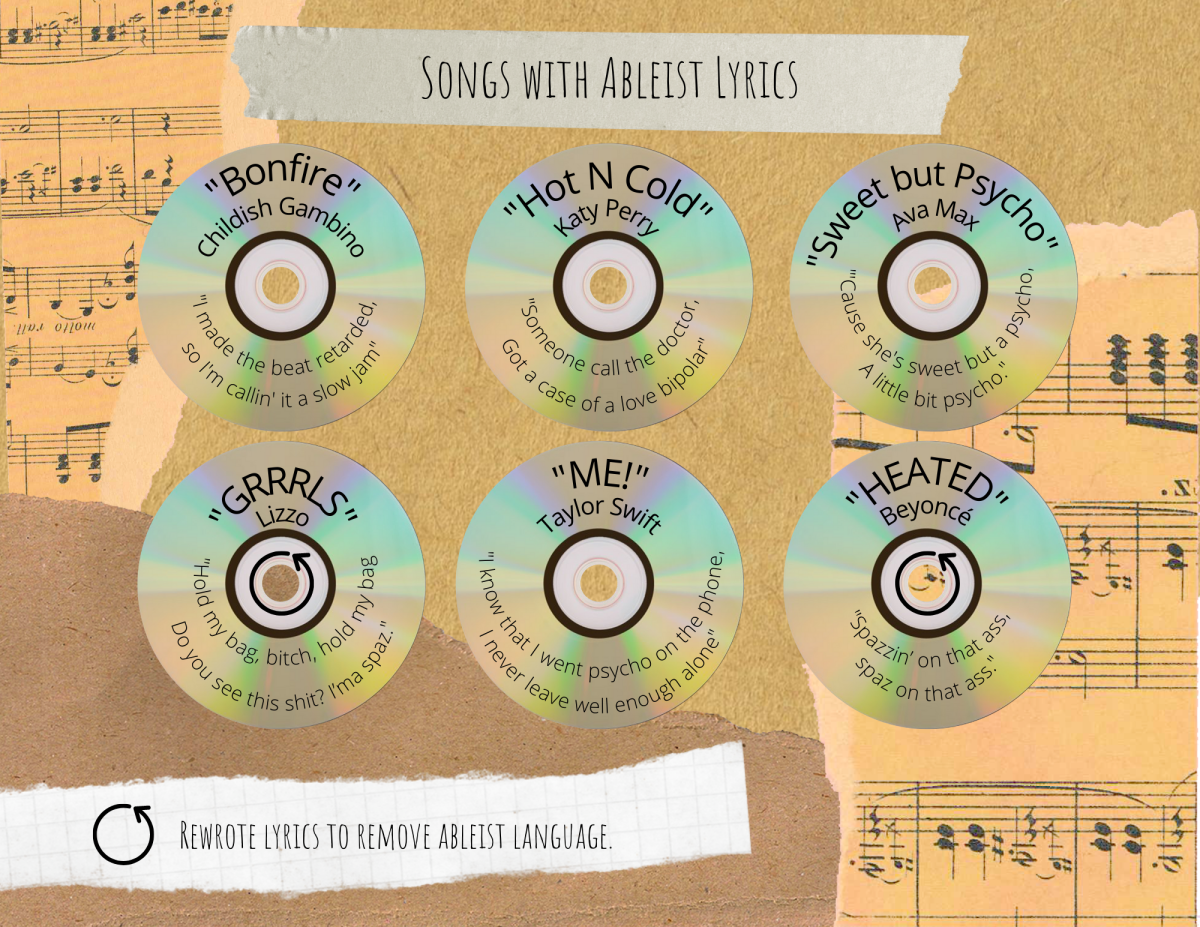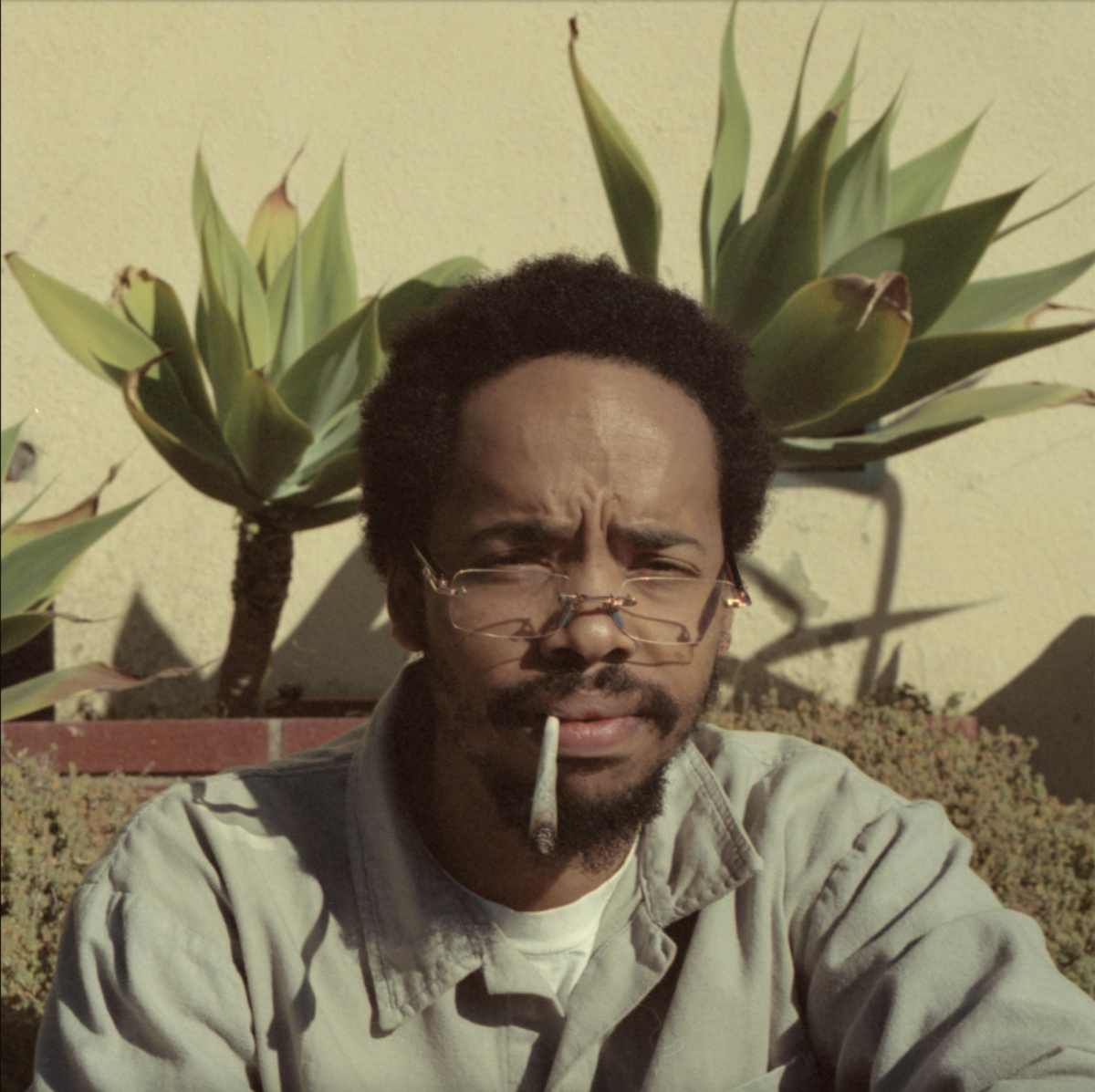Artists should be more socially aware of their words, especially those who have such big platforms.
The common use of the slur “spaz” has unfortunately become normalized in the music industry.
Singer-songwriters Beyoncé and Lizzo have recently changed lyrics in their new songs because of backlash for using an ableist word.
Lizzo’s song “GRRRLS” included the slur “spaz”, a derogatory term short for spastic. The slur was used as an insult with disregard for those who suffer from medical conditions and its use could have been avoided.
The Rolling Explorer, a lifestyle blog for disabled individuals, said in the United States the word is often used to describe the act of losing control, while in the United Kingdom it is a derogatory term referring to someone with cerebral palsy.
Black disabled activist Vilissa Thompson told NPR, a nonprofit media organization, that some would consider “spaz” a part of African American Vernacular English because it is used by Black people within their communities.
“The onus is on us to not just unlearn but also update and improve the way that we communicate with each other, so that our words are intentionally used, so that they don’t cause unintentional harm,” Thompson said in a June 16 NPR article.
The song was initially released on June 10, but was later re-uploaded on all music streaming services with the slur removed.
On July 29, a few weeks later, Beyoncé’s song “HEATED” on her newest studio album “Renaissance” received backlash for also including the word “spaz”. Like Lizzo, Beyoncé rereleased the song with new lyrics.
It is questionable why alternative words or phrases were not thought of during the creative process of the two songs.
With fans around the world, the two singers should have been more cautious with their words.
Lizzo quickly came out with a statement on Twitter and announced that she wants to be part of the change that she wishes for the world.
Accountability and change in behavior are two major steps that should be taken after an artist makes a mistake.
On the other hand, it can be a gray area if they had no ill intentions with their arts.
Although Beyoncé and Lizzo did not intend to use the slur in an insulting way, only listeners who are offended by the slur should call them out.
Even though a person’s intentions may have not been to harm someone’s feelings, the effect is still there.
In this particular instance, some of Lizzo’s and Beyoncé’s fans were not happy.
While a lot of their fanbases came to Twitter to defend them, a lot of their supporters have no position to react as they are not disabled.
Voicing their feelings toward the usage of the slur only silences individuals who are affected and deserve to be heard.
Andy Nguyen, a 21-year-old disabled man, said he does not mind when artists use ableist lyrics.
“I don’t think singers or rappers mean to intentionally use these (ableist) words in a hurtful way,” Nguyen said in a phone call. “Personally, I do not get offended when they do use the word “spaz” . . . If they want to re-release their songs with new lyrics, that’s fine too. I think they have every right to change the words or not change them.”
Both singers made the right decision re-releasing their songs, showing that they are listening to constructive criticism to be better artists.
If the songs’ lyrics didn’t change, the singers would have contributed to the ongoing cycle of the world being made solely for able-bodied people.
The world already caters to able-bodied people and with the constant usage of the word “spaz”, it only conditions people to think that disabled people are not normal.
It is important that celebrities are held accountable for their actions. Criticism should be taken into accountability with the intent of improvement and educating others.






































